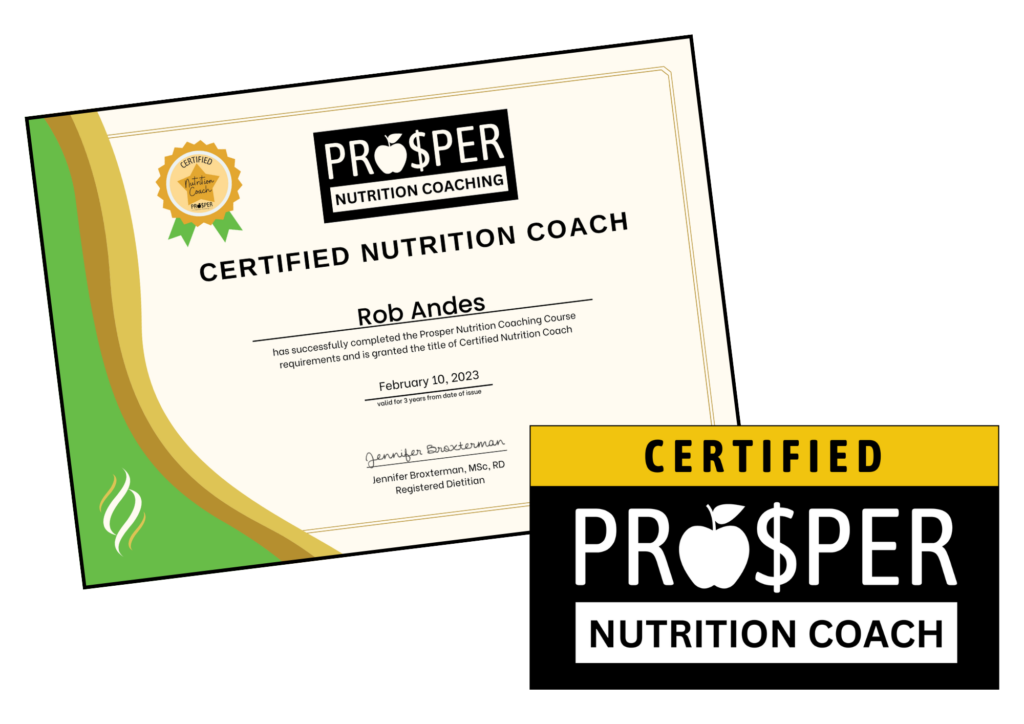

Best Doable Option
The Power of Embracing the Imperfect, but Best Doable Option (BDO)
Written by Jennifer Broxterman, MSc, RD
Registered Dietitian, Founder of NutritionRx

Janice had big goals of working her way up to run a half marathon race.
She downloaded a 12-week, four days a week running program, and she planned to follow it to a T.
But Janice was also a mom with two kids, and the reality was she only had one time slot each week where she had designated childcare and could escape for two hours to train.
Sure, there were certainly other times in the week where she could go for a light jog or a long walk with the kids in their stroller, but it didn’t seem like enough. She wanted to follow the program properly so she could get through the half marathon race in the best time possible.
The result: Janice put running on hold indefinitely, until she had the time to diligently follow the program.
In the decade I have worked as a Registered Dietitian, I have worked with many Janices: people who research the perfect diet or training program. They take food sensitivities tests and read about the Ketogenic diet, carb cycling and intermittent fasting, and and and…
All the while, the Janices refuse to start making any changes until they have it all figured out, and until the timing is perfect to embark on a new diet.
The problem is, they never have it all figured out, and timing is never perfect, so they remain stagnant.
Consider this: An option that doesn’t exist in reality isn’t actually an option. It’s just an idea, or a Best Theoretical Option (BTO).
Janice did not have the luxury in her schedule to block off four 1-2-hour blocks of time to run. This was not an option. Her solution was then to do nothing at all.
But what if Janice had chosen the Best Doable Option (BDO)?
In her case, this would have meant doing one long run a week, plus some shorter walks and jogs with the kiddos in tow. Still a better option than nothing at all, right?
When I introduce this concept, which I learned about from reading the book Designing Your Life: How to Build a Well-Lived, Joyful Life by Bill Burnett and Dave Evans to my nutrition clients, there’s often a lightbulb moment for them.
Their revelation: Making small, imperfect, consistent changes—i.e. embracing their best doable option and abandoning the best theoretical option—is still better than no change at all.
Here’s another great example:
You have an early flight so you don’t have time to make it to the gym or let alone make a homemade lunch. You could throw your hands in the air, because the best theoretical option of hitting up an early morning CrossFit class and then eating a veggie omelette with guacamole before catching your flight isn’t happening, and opt for A&W at the airport. No judgment. It happens.
Or, you can realistically choose the most doable option in this moment and do five sets of 10 air squats and push-ups in your living room to get the blood flowing, and then head to the airport and walk around for 30 minutes before buying an overpriced salad with grilled chicken. Not necessarily the most ideal workout, and maybe the salad is a little lettuce heavy and overdressed, but this was your best doable option for today.
Bottom line:
Perfection is idealistic, cripples progress, and discourages you in the process. Imperfection is realistic, allows for progress, and can leave you feeling proud that you’re doing the best you can on any given day.
Wishing you health & happiness,
♡ Jen
Jennifer Broxterman, MSc, RD
Registered Dietitian
NutritionRx: happy, healthy living with our team of Registered Dietitians
Prosper Nutrition Coaching: a world-class nutrition coaching certification
+
+
+
Want to work with a NutritionRx Registered Dietitian?
Learn more here: Nutrition Packages & Rates
+
+
+
Want to become a Certified Nutrition Coach?
Learn more about our habits-based Prosper Nutrition Certification



